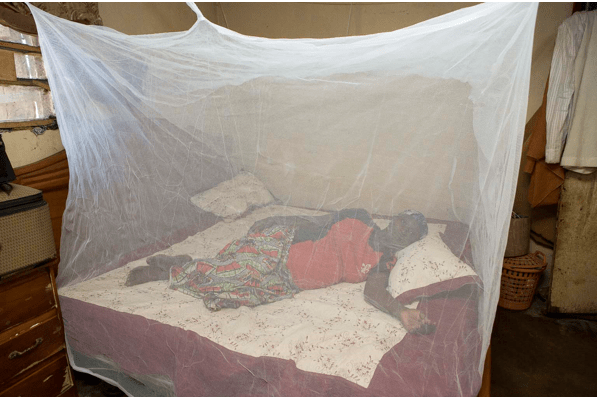Protect your family from malaria with Long-Lasting Insecticide Nets
Malaria remains a pressing public health issue in various regions worldwide, particularly in sub-Saharan African nations such as Nigeria, where the disease is prevalent.
In Nigeria, many families face the constant threat of mosquito bites, which not only jeopardizes their health but also impacts their financial stability. However, the introduction of Long-Lasting Insecticide Nets (LLINs) has been a game-changer, especially for families like that of Mr. Unguwar Ayuba, who resides in Maikunkele locality, Niger State.
Mr. Ayuba and his family have been utilizing LLINs for the past two years and have only positive experiences to share. “By using mosquito nets, my household has not only avoided falling ill but has also allowed me to save more money for other essential needs,” he says with a smile. Mr. Ayuba recalls that prior to his family using LLINs, he would spend an average of 15 thousand Naira every two months on malaria treatment.
“Now, I ensure that my family sleeps under the net every night, and I no longer worry about mosquito bites. This has enabled me to focus more on work and worry less about my children missing school due to illness. I am grateful to those who introduced this initiative to us and I kindly request that they make the nets available to other families,” he adds.
Mr. Ayuba was among the beneficiaries of the LLINs distributed as part of a local health initiative by the Niger State Government and its partners, including the World Health Organization (WHO), in 2022. The objective is to eradicate malaria in the country by 2030.
Although Nigeria continues to bear a significant burden of malaria cases globally, substantial progress has been made in the fight against the disease. According to the 2023 World Malaria Report, malaria cases in the country have remained stable since 2015, with an estimated annual caseload of approximately 63 million, yet displaying a downward trend in malaria-related deaths.
The government has implemented various measures to combat malaria, with the distribution of LLINs being one of them. These nets, treated with insecticides, not only repel mosquitoes but also help in reducing mosquito populations over time, thus aiding in the prevention of malaria transmission within communities.
WHO has been actively involved in supporting Nigeria’s efforts to fight malaria by providing guidance, resources, and technical assistance to both federal and state governments. Working closely with the National Malaria Elimination Programme (NMEP), WHO, with financial support from global funds, helps in coordinating stakeholders and offering technical assistance in policy development and response strategies.
During the 2024 World Malaria Day in Nigeria, WHO Country Representative Dr. Walter Kazadi Mulombo, represented by Dr. Alex Chimabru, the Deputy Country Representative, emphasized that the battle against malaria is not just a health concern but also a matter of social justice and human rights.
Dr. Mulombo reiterated WHO’s commitment to supporting FMoH/NMEP and other malaria partners by providing technical assistance and guidance to achieve national goals. By intensifying efforts to expand access to life-saving interventions, strengthen health systems, and address the root causes of malaria transmission, a more equitable world can be created where everyone can thrive.
It is time to change the narrative and work together to overcome the obstacles hindering malaria elimination. Through collective action, innovation, and unwavering dedication, we can realize our common objective of a future free from malaria for all.
World Malaria Day, observed annually on the 25th of March, seeks to enhance understanding of the perilous disease. The current theme, ‘Expediting the Battle Against Malaria for a Fairer Global Society’, emphasizes the necessity for improved political involvement in the management and prevention of malaria.




